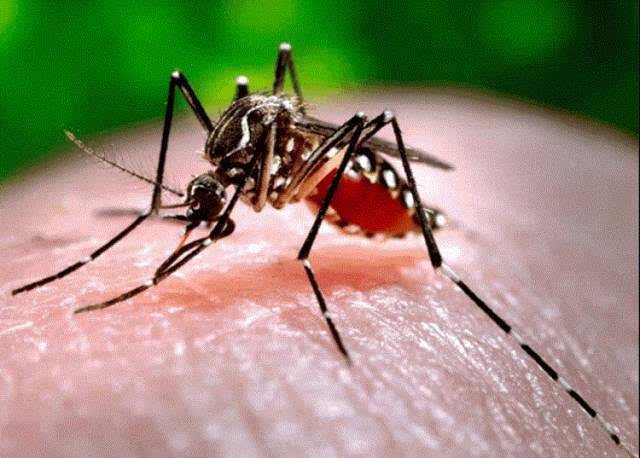Climate Change May Affect Dengue and Malaria Disease Risks
The future may mean more dengue and less malaria in parts of Africa if the planet continues to warm, a new study says.
Humans contract the diseases through mosquito bites.
The Anopheles mosquito carries a parasite that causes malaria. Dengue is caused by a virus carried by the Aedes mosquito.
These two mosquitos also do best in different climates. Malaria mosquitos thrive in temperatures of about 25 degrees Celsius. Dengue mosquitos like it hotter, by about 4 degrees.
Erin Mordecai is assistant professor of biology at Stanford University in California. She is the lead writer of the study. Mordecai said climate change may weaken the spread of malaria but increase the spread of dengue.
Combining mosquito temperature data, population numbers, and climate expectations, the researchers predicted malaria and dengue risks for Africa.
The dengue mosquito is expected to spread across sub-Saharan Africa fully by 2080. And a resulting rise in dengue cases is not the only worry. Aedes mosquitoes can also carry chikungunya, Zika and yellow fever viruses.
At the same time, the researchers say, malaria risk will drop as Anopheles mosquitos move further south and into mountainous areas seeking cooler temperatures.
The researchers say that the growth of cities in Africa may further increase the risk of dengue. The Aedes mosquito reproduces in very small, often human-made, containers, like bottle covers. Such environments are more commonly found in cities, said Mordecai. The Anopheles mosquito lays its eggs in larger, natural bodies of water, like lakes and rivers.
Cities are usually also warmer than surrounding rural areas — a better environment for the heat-loving Aedes.
"We're predicting that dengue is going to become a much bigger problem in Africa," said Desiree LaBeaud, who helped write the study. She is an expert on infectious diseases in children at Stanford University.
Africa is probably not well-prepared to fight dengue, she said. It has fought the spread of malaria with some success, but dengue will require new preventative measures.
And, Mordecai says, tools for identifying dengue disease are not widely available on many parts of the continent.

Generations of scientists and technicians have had training and experience in controlling malaria mosquitoes. But the dengue mosquito is a "very different creature and a different enemy," says Philip McCall, a researcher at Liverpool School of Tropical Medicine in the United Kingdom. He was not involved in the study.
McCall notes other studies have shown links between climate change and dengue.
"It's more likely you would have an increase in dengue, or possibly chikungunya and Zika," growing into a serious problem in cities, he said.
"But I can't see malaria, which is so established in Africa, disappearing easily. So it could become like double-trouble," he added.
Joacim Rocklv is professor of epidemiology at Umeå University in Sweden. He was not involved in the Stanford study. But he points out that it is limited. It only considers a "very fossil fuel-intensive future, which some people think is a little bit unlikely," he said. If you change those projections, he added, "then you might see quite different results" in connection to malaria.
The best way to control dengue is by removing containers that hold still water. This gives the mosquitoes fewer places to reproduce. Another way is to make sure containers are fitted with tight covers.
But there is also new hope for a different kind of dengue control.
A natural bacterium called Wolbachia blocks the dengue virus from reproducing in the mosquito and prevents spread. A trial involving release of Wolbachia-infected mosquitoes in Indonesia was found to reduce dengue cases.
These mosquitoes have reduced the spread in a huge area of Yogyakarta by 77 percent, "which is incredible," said McCall.
I'm Alice Bryant.












